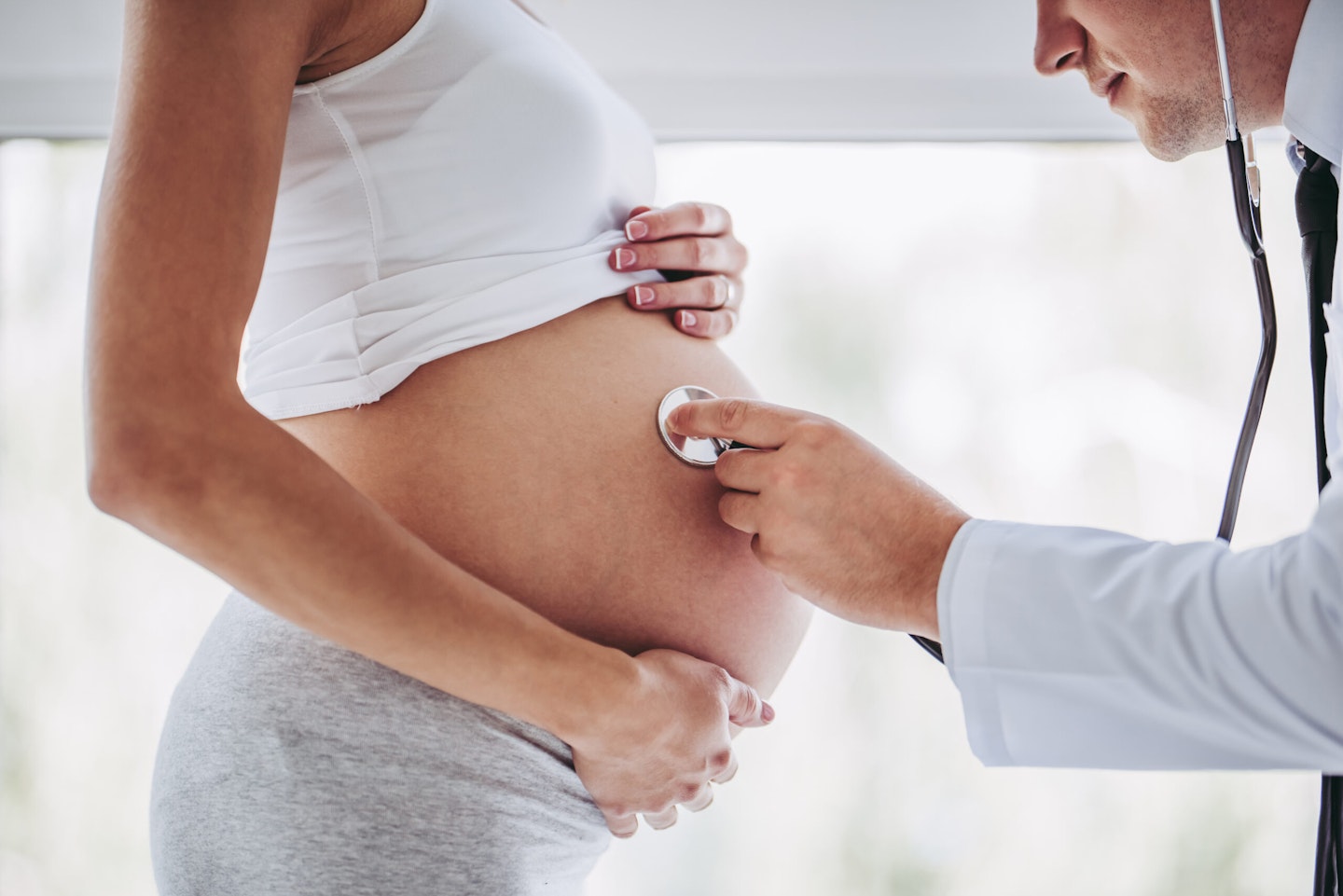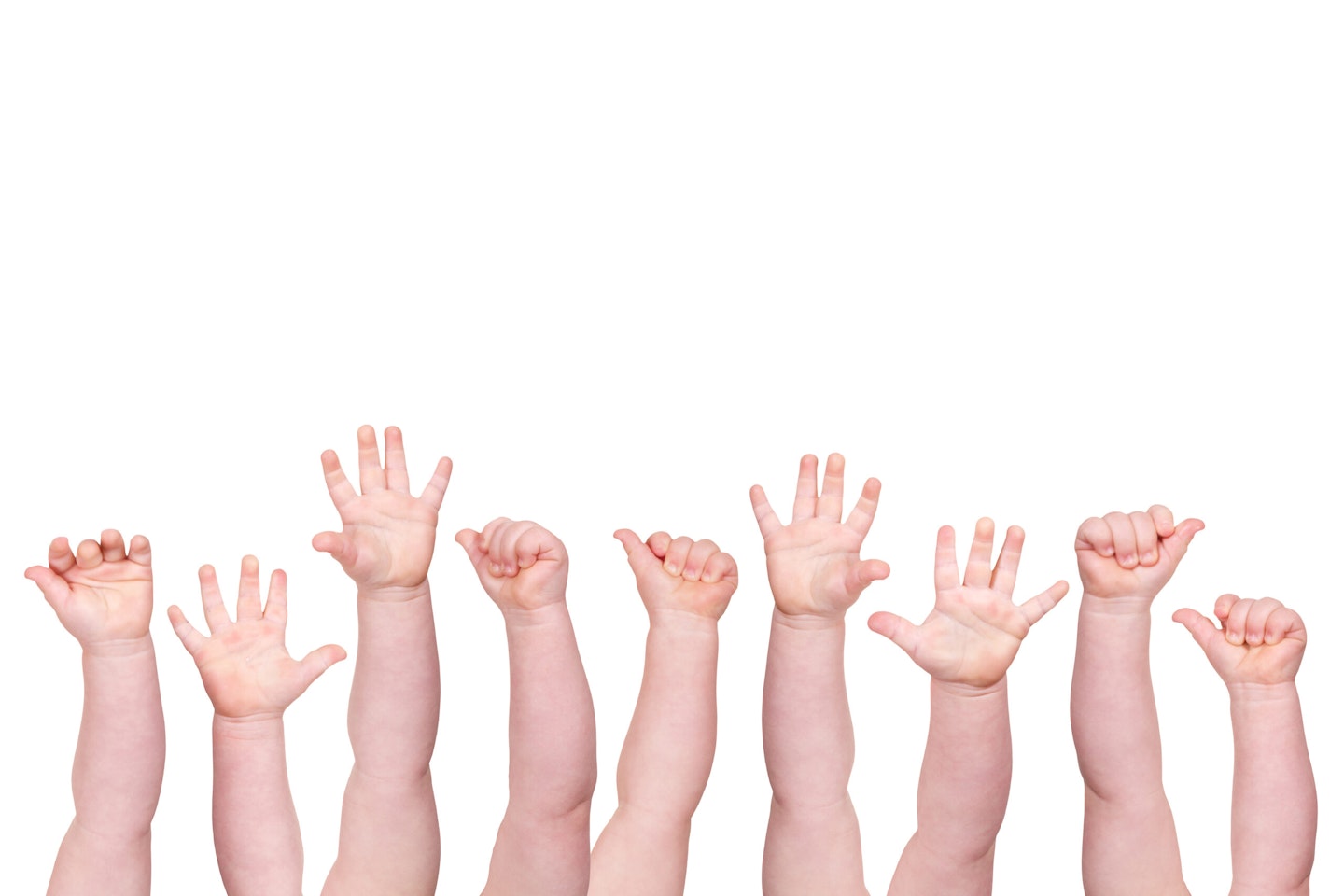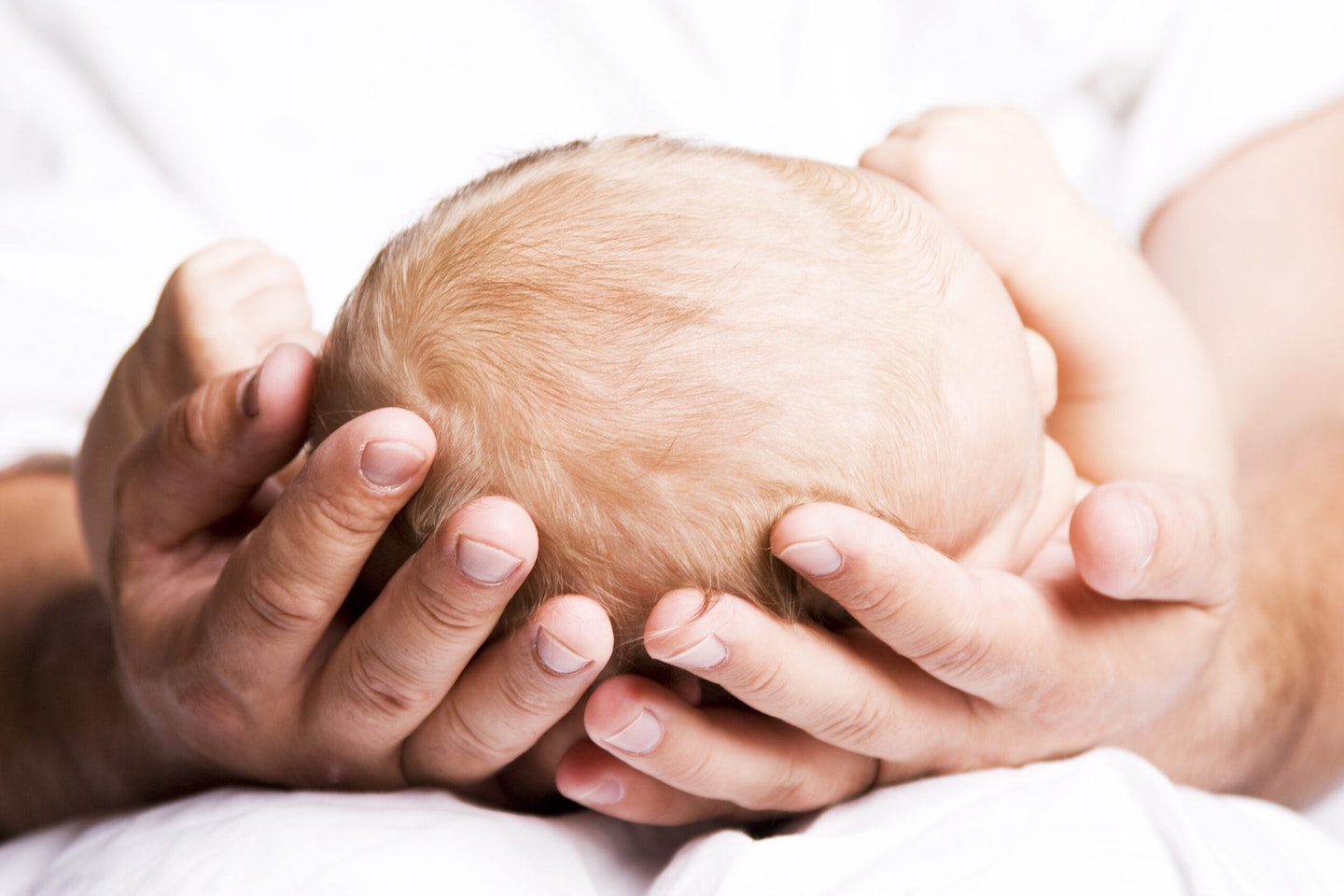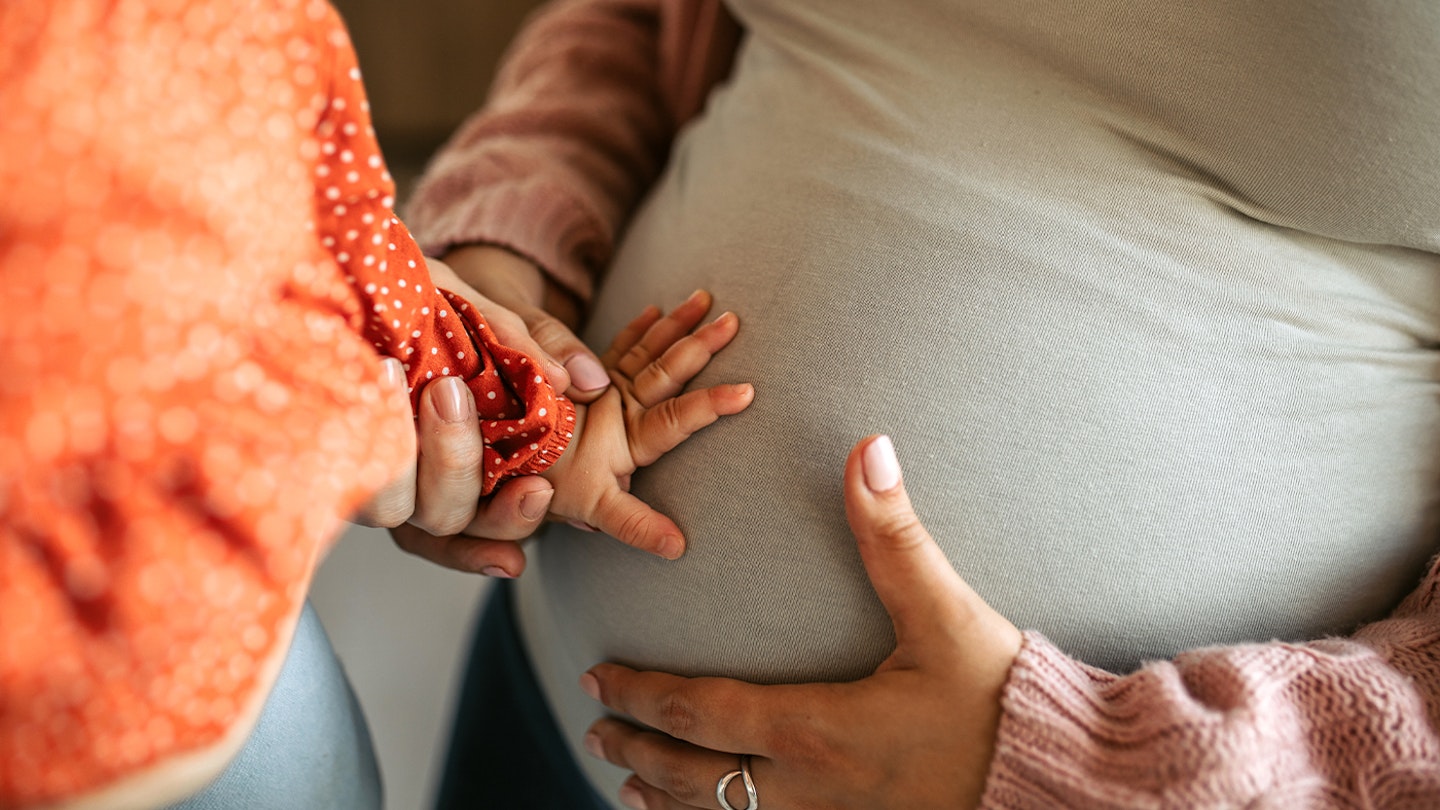You're 9 months pregnant (or 36-40 weeks pregnant) and you're almost there! It's time to put on your Out Of Office and rest up until your new arrival comes along.
You're probably getting a bit impatient now and maybe feeling like you've been pregnant forever - we've all been there! However, look how far you've come, it's almost time to meet your baby!
To help you keep a positive mindset through this final stage of your pregnancy, we've put together everything you need to know about the symptoms, baby development, baby bump and everything you need to think about this month.
Common pregnancy symptoms at 9 months pregnant
• Swollen feet, ankles, legs: Yes, your feet and backache right now but you have rocked this pregnancy, even when it hasn’t felt that way and the finish line is in sight.
• Braxton Hicks contractions:These can actually occur from as early as 20 weeks pregnant, but you might noticeably be feeling them now. They can be sporadic and are also known as 'false labour' pains. Generally a midwife will tell you, if you can breathe during these sorts of contractions then you're not in labour! Braxton Hicks is basically the feeling of pre-birth contractions that mean your baby is getting into place ready for birth. The contractions can come every 5-10 minutes and last up to a minute. The difference between active labour and these sorts of contractions is that the BH pains will not increase in intensity or length. It can be tricky to tell the difference, especially if this is your first baby, so to be on the safe side, it's a good idea to call your midwife.
• Back pain: Lower back pain can really cause discomfort in the third trimester, with around 50-80 per cent of women reporting lower back pain during the whole of their pregnancy journey. With this added pressure on your joints and to help alleviate some of this back pain try placing ice or heat packs on the affected area or treating yourself to a pregnancy massage.
• Stretch marks: You may have not had any by now and suddenly you've noticed narrow pink or purplish streaks or lines, some women have said that at 9 months pregnant their stretch marks have 'just appeared out of nowhere'.
• Lots more toilet breaks: During this final month you're likely to experience pelvic pressure on your hips and bladder as your baby drops into place ready for birth. Although this will take the pressure off your lungs allowing you to breathe easier, you will feel a heightened urgency to go to the toilet.
• Pregnancy energy: Not all mums experience this exhaustion, some feel on top of the world! Some pregnant women were full of energy around this time. This is also completely normal to experience as your body prepares for birth.
• Facial hair growth: You look in the mirror, and you see more hair than usual... Hair growth is due to hormones and typically goes away six months after birth. Your head hair will also feel much thicker and fuller. Taking vitamin supplementscan also influence more hair growth.
• The heartburn will worsen: By now you will feel like you have shares in a particular heartburn remedy and even though swallowing it back makes you gag, you really get through that stuff! And when you mention how bad it is to anyone, they all say the same thing don’t they? ‘Ooh, that means baby will have lots of hair!’ The NHS recommends healthy eating to help with heartburn and indigestion, among other solutions. We highly recommend speaking to your GP before thinking about taking any medicines for indigestion and/or heartburn while pregnant.
• Baby's movements: You should feel your baby move right up to and during labour. At this stage those gentle swirling or fluttering feelings have probably turned into big kicks and jerky movements. You should call your midwife or maternity unit immediately if you are concerned about your baby's movements. Things to look out for if you are concerned about your baby's movement include, 'your baby is moving less than usual', 'you cannot feel your baby moving any more' and 'there is change to your baby's usual pattern of movements'.
• Nesting mode engaged: You stand in the freshly painted nursery, day after day, in a silent, tidy house, looking at piles of unopened nappies, neat little stacks of newborn vests and a perfectly made-up cot, hardly able to believe that a baby really will be with you anytime now. The nesting process is natural and it's normal to feel an overwhelming desire to over-prepare your home for its new arrival and some mums find themselves making endless tweaks to the nursery throughout the final weeks before giving birth.
Your baby's development at 9 months pregnant
 1 of 6
1 of 61) Nearly time!
The ninth month is here, things are getting seriously real and exciting now.
By now your baby should be positioned with their head down ready for birth. If their feet or bottom is down instead, your doctor needs to attempt to turn them around or you might have a Cesarean birth.
 2 of 6
2 of 62) Your baby could be the size of a SMALL watermelon
Don't worry, they won't be this big, but they will be around the size of a mini watermelon, weighing around 3.3kg (on average!)
 3 of 6
3 of 63) All organs are fully developed
By week 39, your baby's organs should be all fully developed. When your baby is born, they will be checked over by your midwife to check their general health using the Apgar scale.
 4 of 6
4 of 64) They can blink
Now that your baby's reflexes are coordinated and fully working, they can now close their eyes, and blink! But that's nothing, your baby can now turn their head and respond to sounds, light, and movements. Now you just have to wait!
 5 of 6
5 of 65) No more lanugo!
With barely any time left in the womb, all of your baby's lanugo will now be nearly gone. Lanugo is the thin layer of hair covering the fetus. If a baby is born prematurely, they will still be covered in lanugo.
 6 of 6
6 of 66) Elongated head?
Your baby's head could look elongated once they are born. But don't worry, the bones in their skull will remould into a normal rounded head shape after they are born.
It's time to go on maternity leave
You might have stopped working before month nine, or you might be waiting a little longer but most women stick that Out Of Office on around 4 weeks before their due date and when it happens it’s like the Friday to end all Fridays (without the alcohol, the heels and the 5am walk of shame).
There is nothing like the delight you will feel fizzing through your tired body as you snuggle into your sofa, with those Malteasers and that box set knowing that you can stay there all day.

Amid all these ups and downs, there is one thing that is set in stone and sealed as fate without you having a clue. Tantalisingly close on the horizon is your baby’s birth day and suddenly almost without warning, he or she will arrive and the wait will be over.
So the very best thing about month nine is that when the going gets tough, you know that next month, you will be looking into the face of your little one.
Popular articles to read next
Your hospital bag checklist: essentials to pack for labour and beyond
